The middle of June and a trip to Rügen can only mean one thing: it’s time for a new production of the Störtebeker Festspiele.
Having returned to the beginning of the story last year, we fast forward to the year 1393 and the siege of Stockholm. Margarete, Queen of Denmark and Norway, has occupied most of Sweden and is hoping to add a third crown to her collection. However Stockholm refusing to surrender, with the pirates provided a supply route back to Mecklenburg. Similar to the division of Berlin many hundred years later, the siege has torn families appart, in some case with members of the same family forced to fight each other.
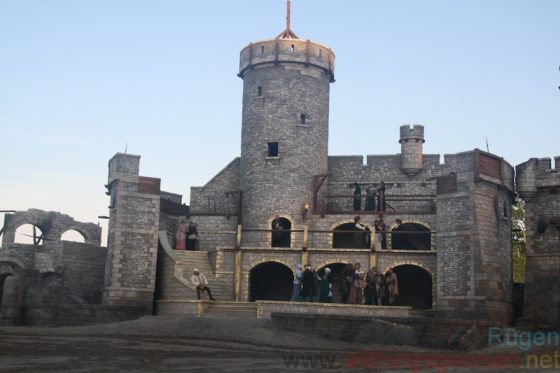
Regular readers will by now know, that the stage at the theatre in Ralswiek is traditionally divided into two different locations, one on each side, with an additional third location sometimes added in the middle. But this year sees some changes to the traditional format, the most obvious of them being that the entire stage now depicts just one location, with the defences of Stockholm on the right and Queen Margarete’s camp on the left.
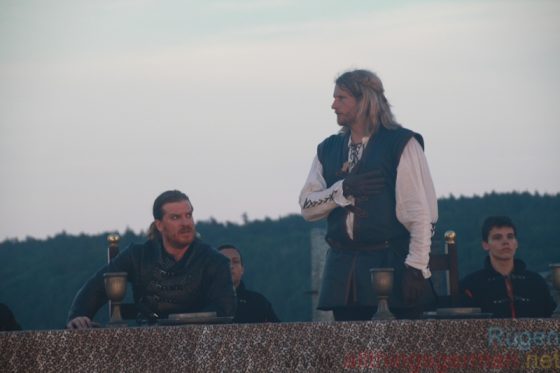
Alexander Koll returns for a second year to play the lead role of Klaus Störtebeker, and in another twist to the established tradition, is once again not the first one out of the mist when the play begins. Alexander Hanfland also returns to play his sidekick Goedeke Michels, and whilst Klaus Störtebeker ist till morning the loss of his beloved Selma, for once it is Michels who is in for romance on stage, that is if he can recognise the signs.
Hanfland, who comes from Cologne, spoke after the performance of how he enjoys being on Rügen spending time with the ensemble when they are not on stage together. The cast discover the island together, spend time at the beach, but the one thing he misses is the Kölsch beer typical of Cologne.
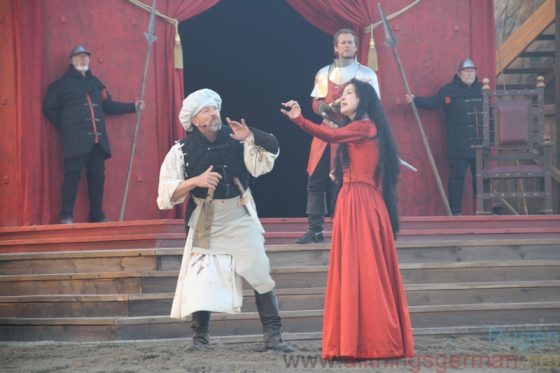
The role of Queen Margarethe has been taken over by Krista Birkner whilst her troops are led by Svarte Skaaning, played by Störtebeker regular Mike Hermann Rader. Opposing them inside Stockholm is Albrecht von Pecatel, played by another regular cast member, Norbert Braun, a role he also played during the last cycle of plays. Also in Stockholm is Karin Hartmann, who after six years running a variety of pubs and guesthouses now appears as a midwife. She is assisted by a new face: Greta Galisch de Palma plays “Smilla”, who takes a liking to Goedeke, although she has a secret to hide.
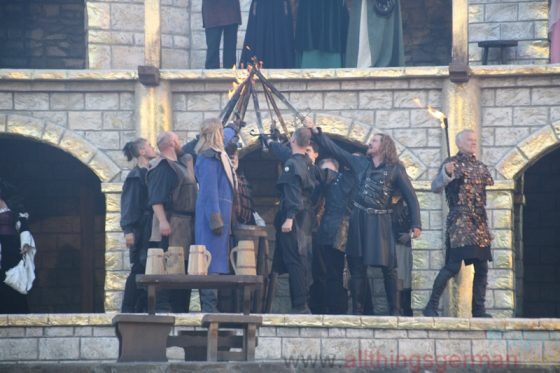
Margarethe is determined to capture Stockholm and tries a variety of tricks to do so, including a dinner invitation so that he star cook (played by Thomas Linke) can demonstrate his abilities, as long as the portions remain small. Her main plan is to ask the crown prince of Castile to send her “El Asesino”, a huge weapon that fires 36 inch canon balls that themselves are filled with gun powder. Except that such a large weapon needs a large ship to transport it, and even though he has sworn an oath to defend Stockholm, Margarete manages to persuade Goedeke to use his ship to fetch it from Bilbao for her.
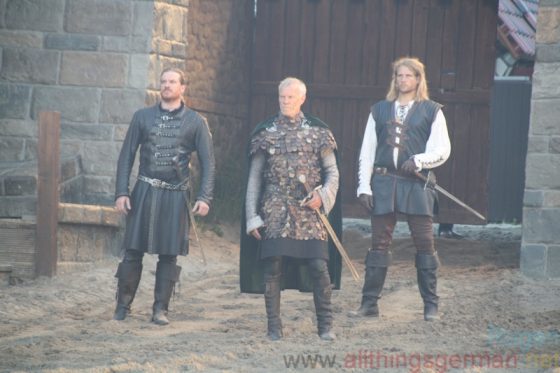
Meanwhile a couple of figures return from last year to provide some light relief between the more serious moments. Charles Lemming as Siggi and Volker Zack as “Der Kleene” are unseperable for most of the play.
A more recent historical connection is provided by Wolfgang Lippert. As it is 30 years since the fall of the Berlin Wall and the GDR regime, the songs he sings reflect this, albeit it slightly adapted to the story in the 14th Century. “Albatross”, which has been part of the play for many years now, was originally sung by the East-German band “Karat”. “Nie Zuvor” was originally sung by “Electra”, and “Der Himmel schweigt” was originally sung by “Petra Zieger & Band”. According to Lippert, the idea to include the songs came from the author of the play, Anna-Theresa Hick, and the director, Marco Bahr.
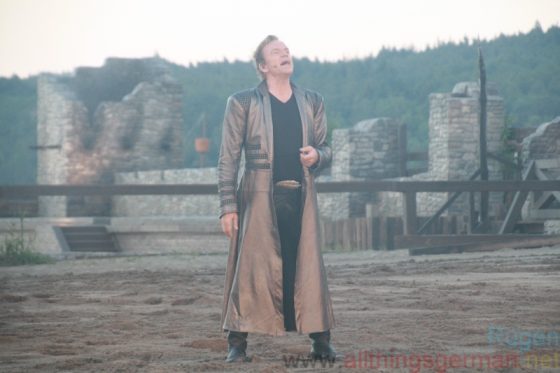
We know from the history books that Margarethe eventually did manage to capture Stockholm, but will she manage it in the course of the play? Will Goedeke fall for her plan, thereby considerably increasing the amount of pyrotechnics in the play? And does Smilla stand any more chance of surviving that any of Störtebeker’s love interests? You’ll need a trip to Rügen to find out…
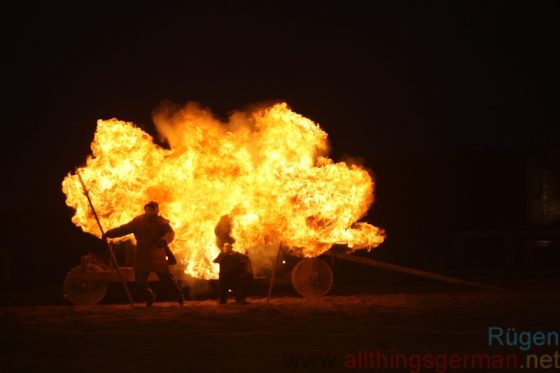
The Störtebeker Festspiele run until 7th September, 2019, with performances every night except on Sundays. Tickets can be booked in advanced on www.stoertebeker.de.
My thanks go to the Störtebeker Festspiele GmbH & Co. KG for inviting me to the press preview performance and allowing me to publish photos of the performance on this site.



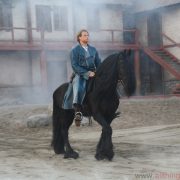

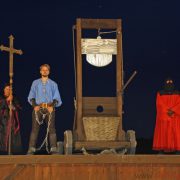


Speak Your Mind